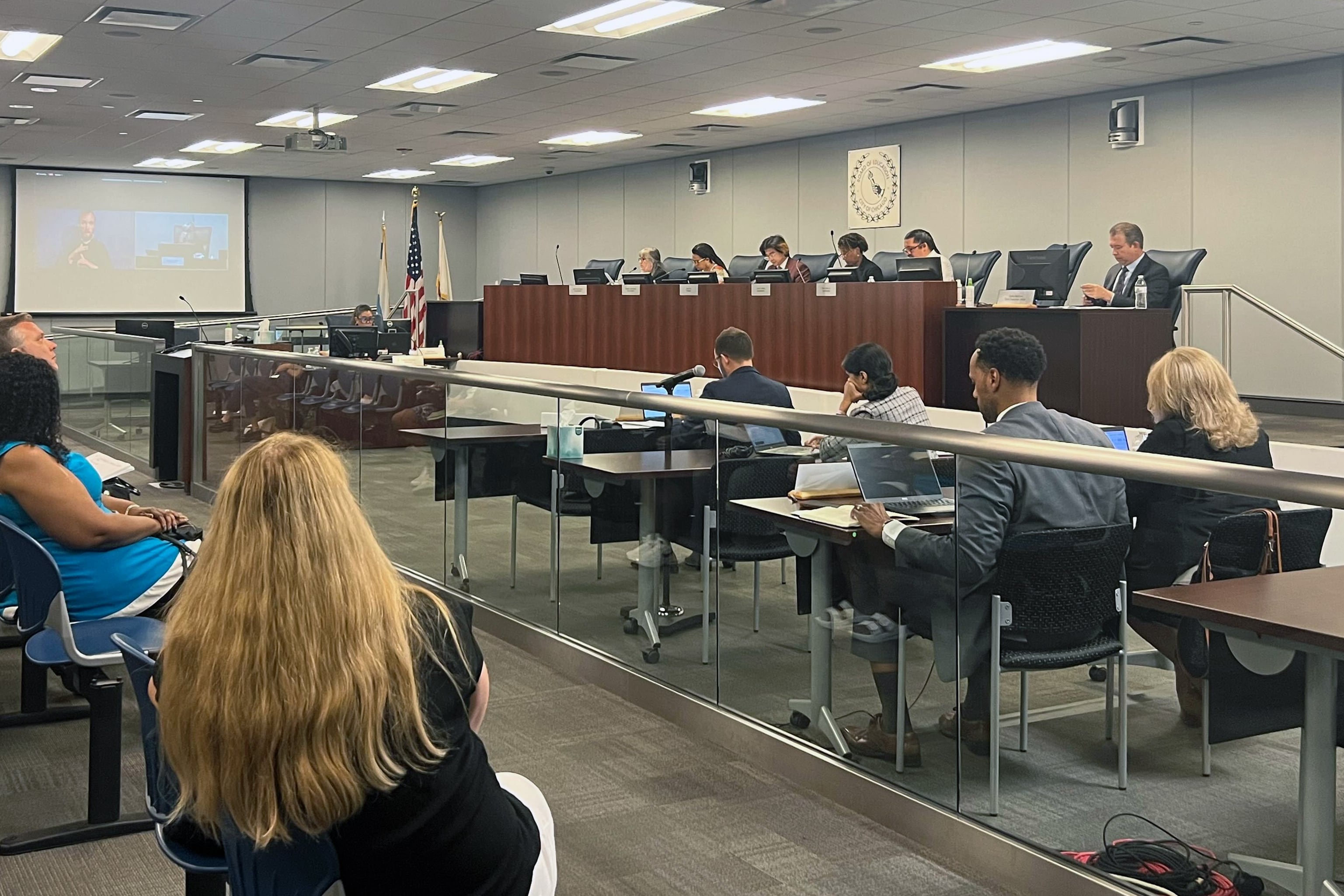Just 47 Chicago Public Schools students with disabilities are on bus routes longer than an hour, an improvement over last year when that figure was roughly 3,000 and 365 children had trips lasting longer than 90 minutes, district officials said Thursday.
“We are working to get that number down to zero,” CPS CEO Pedro Martinez during Thursday’s Board of Education meeting.
The progress comes after more than 8,000 students who may have been eligible for bus service in the past, including those in selective and magnet schools, were told in late July they would not receive busing, but can instead receive free Ventra cards, including for one companion, such as a parent.
Martinez said again Thursday that the district was focused on providing busing to students who are legally entitled to it, such as students with disabilities and those in temporary housing.
CPS officials did not immediately share how many students are waiting to be routed as of Wednesday. As of the first day of school, 7,100 students were on bus routes, and another 3,100 chose the stipend, according to a Monday press release from CPS.
The district has blamed an ongoing nationwide bus driver shortage. In late July, officials said they had just half of the roughly 1,300 drivers they needed.
At Thursday’s meeting, some parents whose children could not get busing, including Patricia Rae Easley, blasted the district. Easley lives in the Austin neighborhood on the West Side and has a daughter enrolled at Kenwood Academy in Hyde Park on the South Side — a route familiar to Mayor Brandon Johnson, who also lives in Austin and has a son enrolled at Kenwood.
“I’m trying to reach out to him,” Easley said. ”Maybe we can get in on their carpool.”
Charles Mayfield, the district’s chief operating officer, suggested CPS is not far from shortening long rides for students with disabilities. Three-quarters of those remaining 47 students who are on rides longer than an hour are on routes that are 61-66 minutes long, he said.
The district’s recent transportation struggles stretch back at least two years. In order to spur more hiring of bus drivers, Mayfield said the district has hosted several hiring fairs and is planning to work with bus companies they contract with to raise driver pay by $2.25. Currently driver pay ranges between $20-25 an hour.
The district was able to accommodate all students with disabilities or those living in temporary housing who requested transportation by the end of July, after extending the sign-up deadline twice, officials said at the time. But they could not guarantee immediate service for families who signed up after that.
Families can opt for stipends of up to $500 a month until they get routed. On Thursday, responding to criticism from some families, Mayfield described the transportation changes this year as a “tough decision that we all needed to make.”
Easley, the parent whose child attends Kenwood, said she pulled her daughter out of a private school so that she could attend the sought-after South Side school as a seventh grader this year.
She was caught off guard with CPS’s announcement three weeks ago that she wouldn’t get bus transportation. Easley said she has no use for the free Ventra card because she doesn’t feel public transit is safe enough for her daughter. That commute would involve two buses and a train, she said.
So she drives her daughter 40 minutes to Kenwood.
“It’s definitely not only an inconvenience but an expense,” Easley said. “An unexpected expense when we’re paying for gas that’s $4.57 a gallon.”
Reema Amin is a reporter covering Chicago Public Schools. Contact Reema at ramin@chalkbeat.org.






